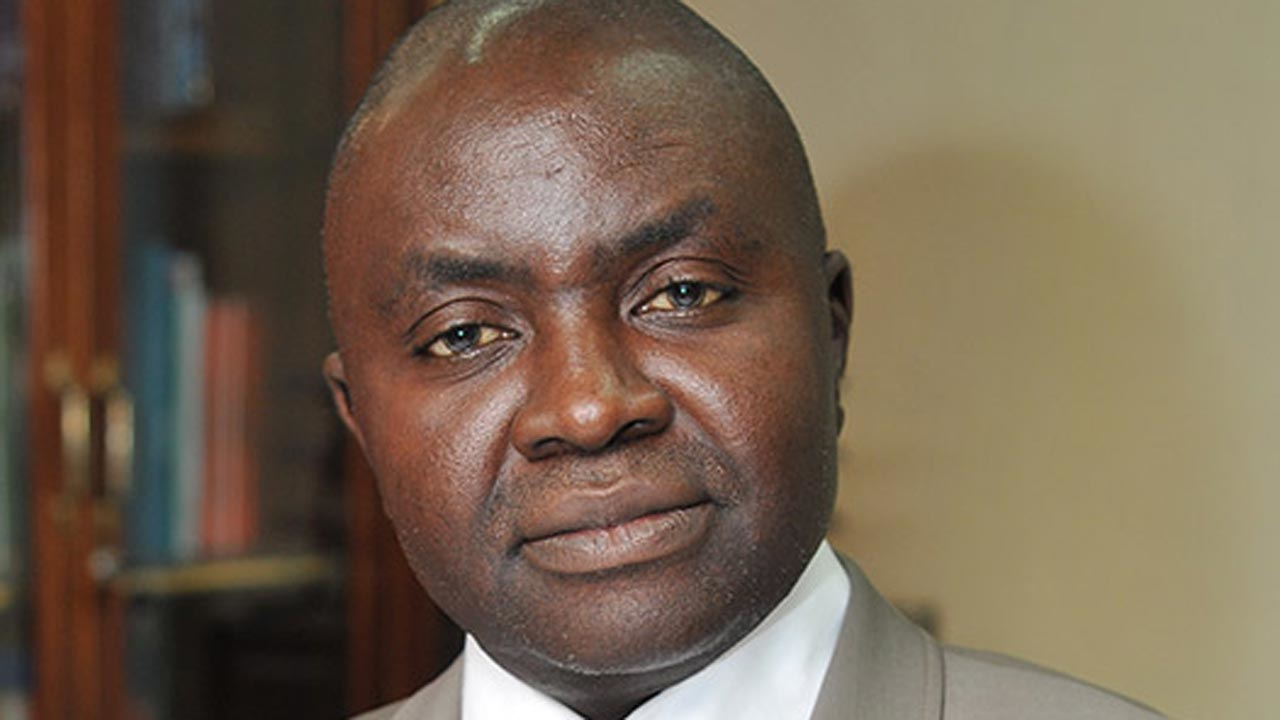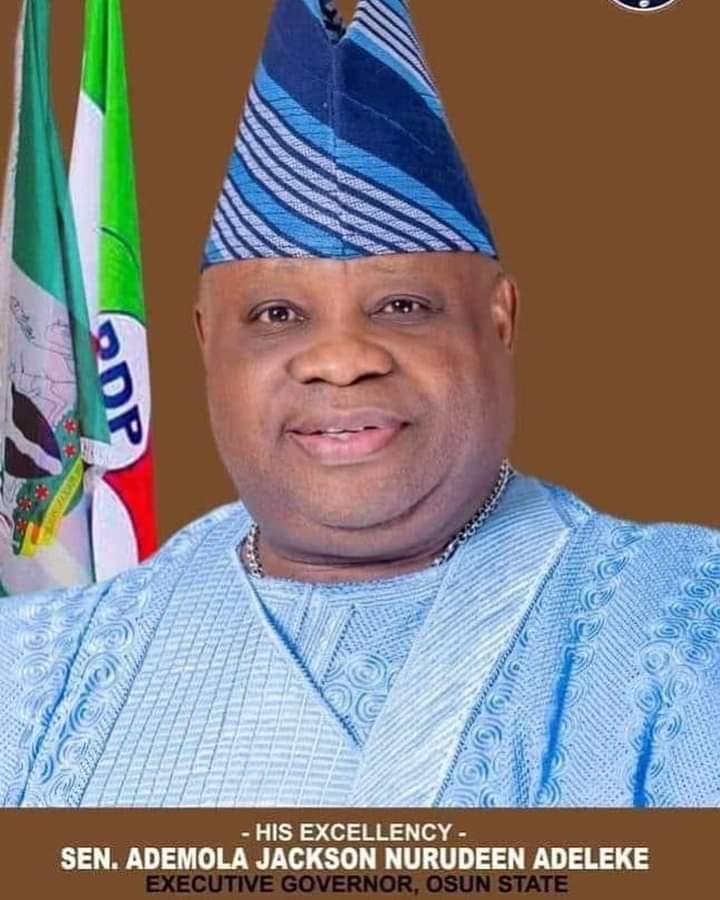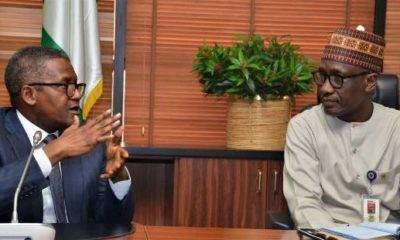NEWS
CPPE Foresees Subsidy Leading Nigeria to Bankruptcy

By Edozie Obasi-Eze
The Centre for Promotion of Private Enterprises (CPPE) has projected that barring changes to the situation in Russia and Ukraine, Nigeria’s subsidy cost may hit N4 trillion by the end of the year, which might lead the country to bankruptcy.
Chief Executive Officer (CEO), CPPE, Nigeria’s subsidy, expressed his opinion yesterday at its first-quarter press conference on the Nigerian economy.
He said, “With current subsidy trajectory, subsidy cost would not be less than N4 trillion by the end of this year. This is clearly a major source of disruption and dislocation for the finances of government at all levels.”
He averred that all things being equal, that is, if crude oil price did not shift from the current levels and the PMS price stayed fixed, Nigeria would be on the brink of bankruptcy, because the current subsidy regime was not sustainable.
He also opined that the deregulation dialogue needs to be brought to the table urgently to save the economy from further deterioration.
Dr Yusuf stressed that brave steps must be taken to ignite the reform process in the petroleum sector with the full activation of the Petroleum Industry Act (PIA).
He maintained that in the interim, all charges – import duty, levies, and taxes on importation should be suspended to moderate the cost of fuel, though the ultimate solution would be to revisit the deregulation engagement with stakeholders to pave way for a market-driven, private sector-led investment framework, with the government playing a regulatory role.
Read Also >> Nigeria Approves Siemens 25,000 Mw Power Expansion Contract
“This is the option we have as a country to stop the bleeding, the distortions, the smuggling and loss of investment that our petroleum downstream sector had suffered over the years,” he added.
He listed the possible benefits of a market-driven pricing regime to include free resources for investment in critical infrastructures such as power, roads, rail systems, health sector, and education sector; unlocking the huge private investment potential in the downstream oil sector, especially in petroleum product refining.
According to him, it would also eliminate the patronage mentality, rent-seeking activities, and corruption that currently characterise the downstream oil sector, in addition to creating more jobs for the teeming youths in the downstream oil sector as an investment in the sector improves; would reduce smuggling of petroleum products outside the country.
The Russia Ukraine war, which he observed has disrupted global oil and gas supplies and resulted in sharp increases in energy prices globally, was already taking a toll on the cost of production, cost of business operations, haulage costs, and consequently on profit margin.
“The cost of the major energy products had increased significantly – diesel, aviation fuel, natural gas, and kerosene. The inflationary outcomes will affect the affordability of many products, leading to further worsening of poverty.
“We will see an increase in subsidy payment as the landing cost of petrol increases. Regrettably, we remain a major importer of petroleum products. Therefore, when oil prices increase, subsidy payment also surges. Only recently the estimate of subsidy was put at N3 trillion by the NNPC. That was before the Russian invasion of Ukraine.
The story would have changed now. We should expect subsidy payments to exceed the N3 trillion by the end of the year, depending on how long the sanctions and invasion last. This of course has very serious implications for our budget and government finances.
“If crude oil price remains at current levels, and the PMS price remains fixed, the country may be teetering on the brink of bankruptcy. The current subsidy payment regime is simply not sustainable. The deregulation dialogue needs to urgently resume to save the economy from further deterioration,” he noted.
International News
Pope Francis To Return To Vatican After Month-Long Treatment
Pope Francis will on Sunday be discharged from Rome’s Gemelli hospital, where he has been receiving treatment since February 14 for breathing difficulties and pneumonia.
The 88-year-old pontiff will return to his residence at Saint Martha’s House in the Vatican, where doctors have advised that he undergo “a long convalescence… of at least two months.”
Speaking to reporters on Saturday, Dr. Sergio Alfieri explained that while the pope’s health is improving, further recovery is best achieved at home.
READ ALSO: Pope Francis’ Condition Improving, Says Vatican
“Further progress will take place at his home, because a hospital — even if this seems strange — is the worst place to recover because it’s where one can contract more infections,” Alfieri said.
Dr. Luca Carbone, another physician at Gemelli, added that there are positive signs in the pope’s condition. “We hope that he will soon be able to resume his normal activities,” he stated.
Before leaving the hospital, Pope Francis is expected to greet the public and offer a blessing from a hospital balcony after the Angelus prayers on Sunday, marking his first appearance in weeks.
Speculation about a possible resignation has been circulating due to the pope’s prolonged absence from public duties, but Vatican officials have firmly denied such claims.
When asked if the topic had been discussed, Vatican Secretary of State Pietro Parolin was clear in his response: “No, no, no, absolutely not.”
The pope, who had part of a lung removed in his youth, has received an outpouring of prayers and well-wishes from Catholics worldwide.
Supporters have been gathering outside Gemelli hospital, leaving flowers, candles, and messages of encouragement.
His hospitalization, the longest of his papacy has led to questions about how Easter celebrations will be handled in his absence.
However, Vatican officials remain optimistic about his gradual return to his duties in the coming weeks.
NEWS
Ifon-Ilobu Crisis: Adeleke Assures Of Quick Restoration Of Peace

Osun State Governor, Senator Ademola Adeleke has assured the people of Ilobu and Ifon communities that speedy conflict resolution steps are being taken to restore peace even as he expressed directed the emergency services agency to activate its operations
He gave the assurances in response to a Save Our Soul message from the people of Ilobu and Ifon.
Gov Adeleke said his administration has re-strategized on resolving the conflict with multiple peacebuilding options which are being unveiled and implemented.
“I assure the people of Ilobu and Ifon that I am committed to securing their lives and properties. I have updated the presidency of development in the state. We are on top of the situation”, the governor was quoted as saying.
ALSO READ: Okpebholo Joyful As Work On Edo State’s 1st Flyover Bridge Reaches Advanced Stage
Meanwhile, we seek to bring to the attention of the public that old videos of communal conflicts in some parts of Osun state are being circulated by opposition elements to spread false pictures of insecurity in Osun State.
While the ongoing conflict is regrettable and while all hands are on deck to stop the violence, we inform the public to take note of the activities of fake news merchants who are digging up old videos to discredit the state government.
The videos being circulated of violence in other towns and villages in Osun are fake news and should be disregarded by the members of the public.
Gov Adeleke has stepped up conflict de-escalation moves on Ifon- Ilobu conflict, imposing a 24-hour curfew, mobilising joint security task force and hosting a peace deal between the two warring communities.
NEWS
Ifon-Ilobu Communal Dispute: Adeleke Extends Curfew To Erin-Osun Town

Following the escalation of the crisis between the warring communities of Ilobu and Ifon, Osun State Governor, Senator Ademola Adeleke has approved that the curfew be extended to Erin-Osun town.
According to a government house statement in Osogbo, on Saturday, the curfew time is now 24 hours daily.
The statement has it that this is as the Governor directs all security agencies such as the Military, Nigeria Police, Nigeria Security and Civil Defence Corp NSCDC, Immigration, NDLEA, and AMOTEKUN among others to extend its security surveillance to the community.
ALSO READ: Okpebholo Joyful As Work On Edo State’s 1st Flyover Bridge Reaches Advanced Stage
All the security agencies are to ensure strict compliance to the curfew, which is now 24 hours daily until peace is restored.
The imposed curfew was necessary to forestall escalation of the crisis and breakdown of law and order due to the communal clashes in the communities.
According to the statement by Commissioner for Information and Public Enlightenment, Kolapo Alimi, where Governor Adeleke was quoted as expressing dissatisfaction over the resurgence of the crisis in the warring communities. The curfew on Ifon-Ilobu Communities has now been extended to the Erin-Osun community until further notice.
“His Excellency, Governor Ademola Adeleke is saddened at the escalation of the communal clashes between Ilobu and Ifon communities.
“To ensure that the crisis is curbed in the environment, the Governor has approved that the curfew be extended to Erin-Osun community and the curfew time is now 24-hours daily, effective immediately (today March 22, 2025) until further notice.”
Gov Adeleke has further directed that the joint security team comprising the Nigerian Army, Nigerian Police, Nigerian Immigration Service, the Nigeria Security and Civil Defence Corps, NDLEA and AMOTEKUN among others to continue to maintain their usual 24-hour surveillance and forestall breakdown of law and order.
“The Governor expresses his sympathy on lives and property lost in the escalated communal crisis and assures that perpetrators will face the wrath of law,” he said.
He added that “Osun State is a place of peace and harmony, and the government will not allow it to be truncated. This communal clash has to stop now, and we will ensure that it happens.
“I urge everyone to imbibe the ethos of Omoluabi and shun communal crisis, embrace peaceful co-existence as brothers and sisters, the statement concludes.















